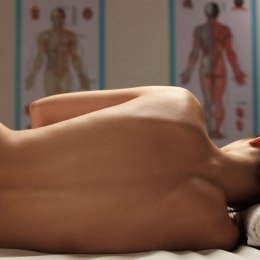New studies released last week have shown botulinum injections to be effective against the treatment of migraine headaches.
The official medical journal of the American Society of Plastic Surgeons ‘Plastic and Reconstructive Surgery’ published the findings in their January issue, which analysed data from multiple studies covering a total of 3646 patients who received botulinum injections vs placebo injections.
Of the 3000+ candidates, over 86% of the patients were female, 43% identified as having chronic migraines, and all candidates suffered at least 15 migraines per month. Patients in the botulinum groups showed an average reduction of 1.6 fewer migraine attacks per month. A significant improvement on the overall quality of life was also observed by the group after three months. This, according to authors, also directly links to a reduction in symptoms of depression and anxiety, as a result of a reduction in migraine-related disability.
While Botulinum injections have been approved for the use of migraine reduction for many years, studies of their efficacy until now have shown mixed outcomes. In turn, these new updates are being seen by many amongst the medical community as landmark results.
On standard patients, treatment of migraines using botulinum usually consists of 15-20 injections administered to head and neck muscles once every two to four months.
So how does botulinum work against migraines? As explained by Plastic and Reconstructive Surgery, “Its effect is explained by the local activity of botulinum neurotoxin on the neuromuscular junction and peripheral signals. The resulting protein complex produced by Clostridium botulinum blocks release of acetylcholine within the neuromuscular junction, and decreases peripheral sensory signals by reducing muscle activity and release of neuromediators such as glutamate, substance P, and calcitonin gene-related peptide. This inhibition of inflammatory mediators partially explains its ability to reduce pain.”
Study candidates receiving botulinum injections experienced a number of minor side effects (more so than placebo candidates) including some muscle weakness, double vision, drooping eyelids, neck pain and muscle tightness. There were no severe side effects reported.
The study’s lead author, Dr. Eva Bruloy from the University Hospital of Amiens-Picardie in France, says of the drugs available for the prophylactic treatment of migraines, botulinum is the best choice, with the least number of side effects. “For chronic migraine,” she said, “Botox is a better prophylactic than the drugs.”
“Botulinum toxin type A is a safe and well-tolerated treatment that should be offered to patients with migraine,” say study authors.
For more news and updates, subscribe to our weekly newsletter.




